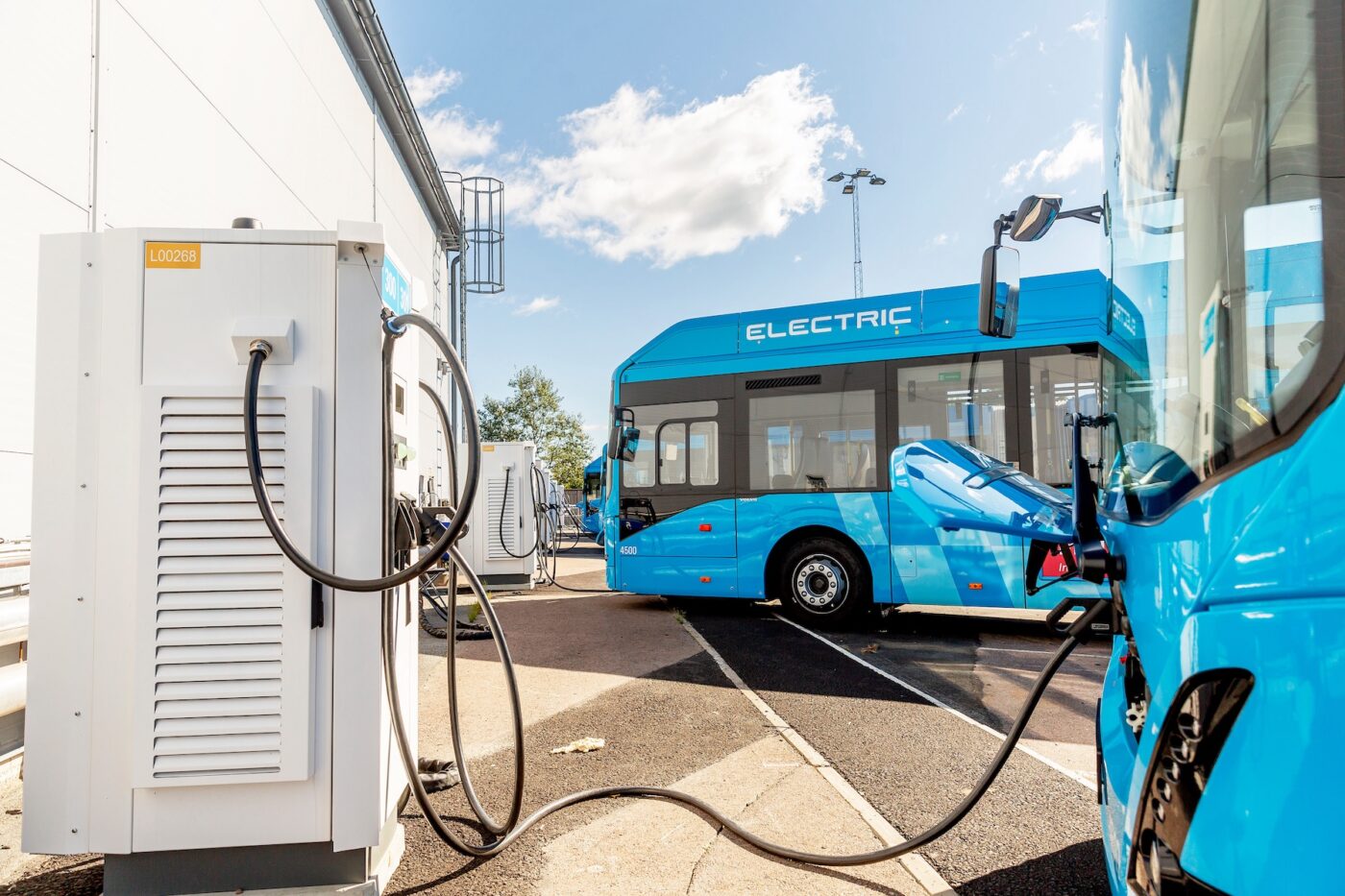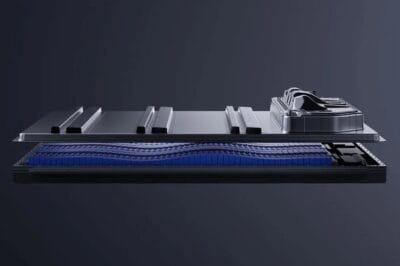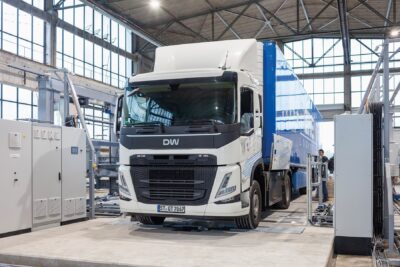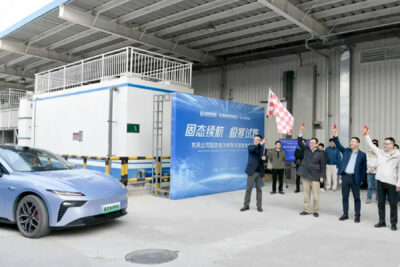Nobina wants to use decommissioned electric bus batteries for second-life storage
Nobina is not only Scandinavia’s largest public transport operator but also one of the largest electric bus operators in Europe: over 1,000 of the Swedish company’s total of around 5,000 buses are already electric. The total battery capacity available to Nobina’s electric buses is around 500 MWh, according to Nobina. It is therefore clear that the company is asking itself what should happen to decommissioned batteries, especially as Nobina emphasises its sustainability.
Nobina has now found an exciting partner for the reutilisation of the electric bus batteries, namely the Munich-based company STABL Energy. The aim of the partnership is to find a flexible and resource-efficient solution for decommissioned batteries. As part of the partnership, these are to be installed in storage systems instead of being recycled – possibly too early.
Nobina does not sell the batteries to STABL Energy; instead, battery storage systems are installed in the countries in which Nobina is active and operated by Nobina to support the grid. In addition, the local grids are stabilised overall and surplus electricity is also available for trading on the spot market. Nobina is active in Sweden, Finland, Norway and Denmark, so the battery storage systems are likely to be installed in these countries.
“We are proud of this partnership, pioneering new solutions that can impact the entire industry and society. This sustainability initiative not only enhances our operational resilience and reduces energy costs but also minimizes Europe’s dependence on critical minerals and helps stabilize local power grids – a truly circular and sustainable approach,” says Petra Hammarin, Director Business Development at Nobina.
“We see great potential for Nobina to extend the lifespan of batteries through stationary storage applications when they are no longer suitable for vehicle use. This provides a resource-efficient alternative to premature and expensive recycling, which removes batteries from the cycle far too early,” says Dr Nam Truong, CEO & Co-Founder of STABL Energy. “Together, we can pioneer new standards for e-fleet operators across Europe and drive the energy transition forward. The resource-efficient use of batteries is also of immense strategic importance for Europe from a geopolitical perspective, as it strengthens the circular economy and reduces dependency on raw materials.”
By using STABL Energy’s modular multilevel inverter technology, which makes it possible to build battery storage systems from second-life batteries, fleet operators such as Nobina can at least partially offset their high investment costs for electric vehicles by continuing to use the batteries and make their own business more efficient.
With over 1,000 electric buses already in the Nobina fleet, it is clear that the company is constantly procuring corresponding vehicles. Last year, for example, Nobina ordered 55 Urbino 15 LE electric buses from Polish manufacturer Solaris for the Skåne region and a further 15 units for Värmland. In addition, 18 units of the Urbino 18 electric articulated bus were ordered for Malmö. Otherwise, Nobina has many electric buses from Volvo in its fleet, but also from MAN. The most unusual model in the fleet is the 24-metre version of 21 Exqui.City battery-electric double-articulated tram buses from Van Hool. The transport authority Skånetrafiken Nobina recently granted a licence to operate and expand bus services in Malmö for twelve years from June 2027. From 2027, around 300 buses will be operating in Malmö, 95 per cent of which will be electric buses.





0 Comments